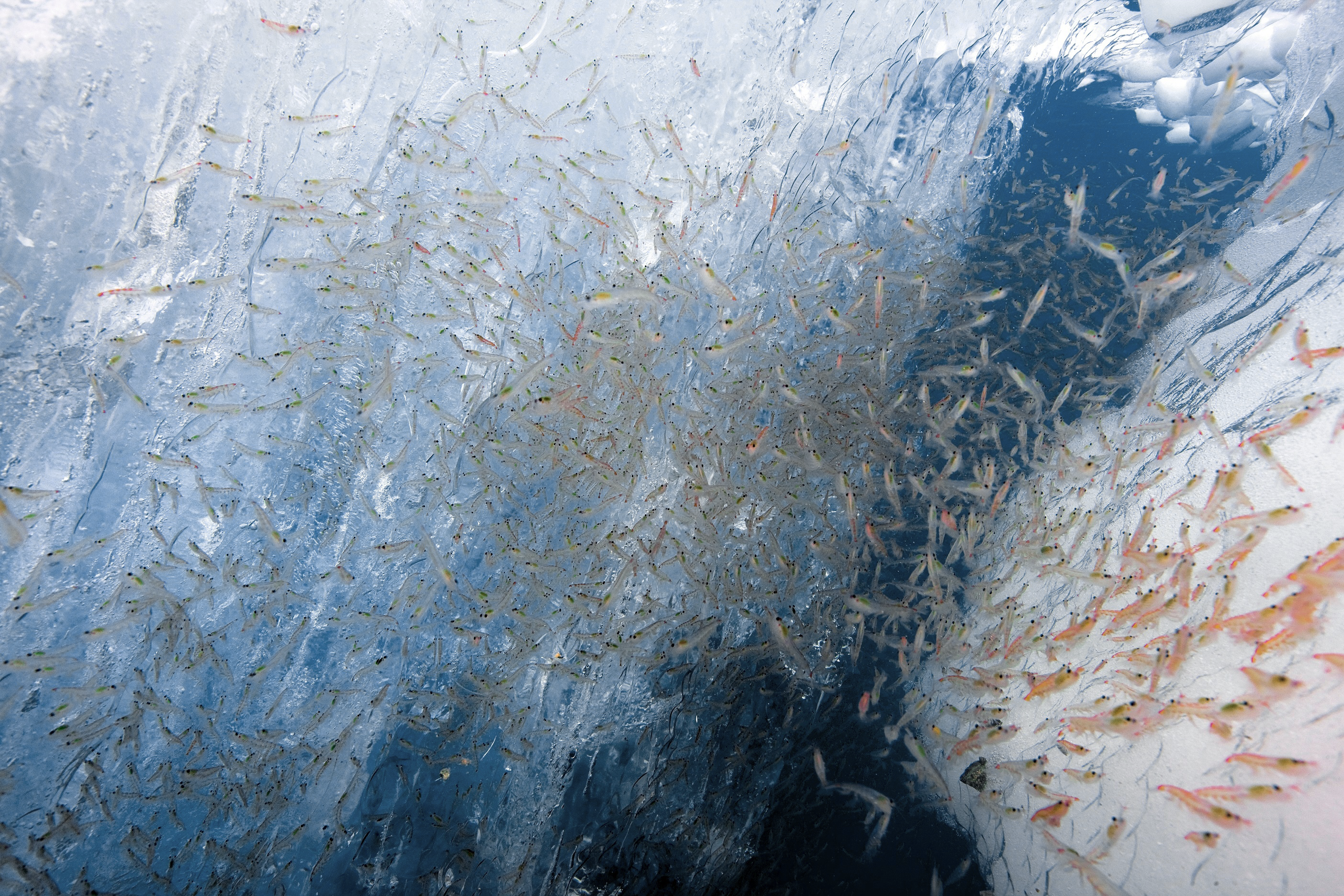
Krill Oil Sustainability
MOST SUSTAINABLE FISHERY IN THE WORLD
The sustainability of krill oil production primarily hinges on responsible harvesting practices and ecosystem protection. Krill are tiny, shrimp-like crustaceans found in the cold waters of the Southern Ocean, and they form a critical part of the marine food chain. Ensuring the sustainability of krill oil involves balancing the health benefits of krill oil with the need to preserve the Antarctic ecosystem.
Here are the key factors in krill oil sustainability:
1. Strict Harvesting Regulations
The krill population is managed under strict international regulations, primarily overseen by the Commission for the Conservation of Antarctic Marine Living Resources (CCAMLR). This organization sets limits on how much krill can be harvested annually to avoid overfishing and to maintain a healthy ecosystem. The total allowable catch is typically only a small percentage of the total krill biomass, ensuring that krill populations remain robust.
2. Ecosystem Impact
Krill are a vital food source for many marine animals, including whales, seals, penguins, and fish. Overfishing could disrupt this delicate balance. To mitigate this, sustainable krill oil producers focus on harvesting krill in areas that are less frequented by these predators and avoid fishing during key breeding seasons. This helps minimize the impact on the broader ecosystem.
3. Sustainable Fishing Technologies
Leading krill oil producers use eco-friendly technologies to reduce bycatch (catching non-target species) and prevent environmental damage. One such method is the Eco-Harvesting™ technology, which uses a continuous pumping system to capture krill without dragging nets along the ocean floor, reducing harm to other marine life and minimizing disruption to the seabed.
4. Certifications
Many responsible krill oil brands carry the Marine Stewardship Council (MSC) certification, which guarantees that the product comes from well-managed fisheries. MSC-certified krill oil ensures that the krill harvesting process meets rigorous sustainability and traceability standards.
5. Low Carbon Footprint
Compared to other forms of marine-based oils (like fish oil), krill oil has a relatively low carbon footprint due to more efficient harvesting methods and the dense population of krill in concentrated areas, which reduces fuel use for fishing vessels.
6. Scientific Monitoring
Continuous scientific research and monitoring of krill populations and Antarctic ecosystems help inform sustainable practices. Ongoing studies assess krill biomass and the impact of climate change to ensure future harvesting remains sustainable in the face of changing environmental conditions.
7. Climate Change Considerations
Krill populations are sensitive to changes in sea temperature and ice coverage. Producers committed to sustainability also work on reducing their carbon emissions and supporting climate research, which is crucial in protecting the krill population from the effects of global warming.
Sustainable krill oil production is feasible when careful management practices, eco-friendly technology, and rigorous scientific monitoring are in place. By supporting certified krill oil brands and encouraging responsible harvesting, consumers can benefit from krill oil's health advantages without compromising the fragile Antarctic ecosystem.
___________________________________
Before adding any dietary supplement to your routine, including krill oil, we recommend talking with your healthcare provider – especially if you have any pre-existing health conditions, take medication, or are pregnant/nursing. Dietary supplements are not meant to substitute a healthy diet and exercise. Note: Krill oil contains crustacean shellfish.
